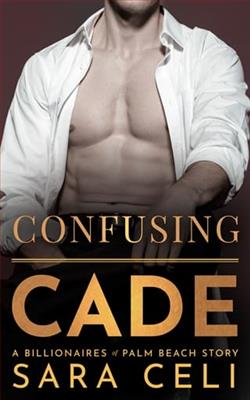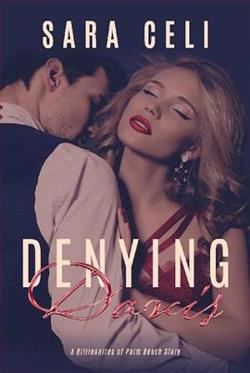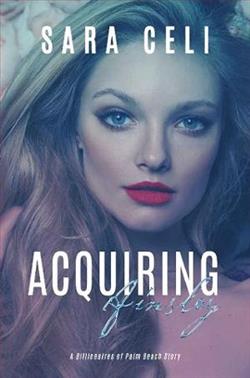Page 54 of Betray Me
“You won’t know unless you ask.”
I sit in silence, wrestling with the possibility. The rational part of my mind—the part trained in strategic thinking and risk assessment—knows Dr. Specter is right. Luna and I are the only two people who truly understand what it’s like to be daughters of the network, shaped and molded by forces beyond our control.
But the terrified child inside me, the one who learned that vulnerability is weakness and weakness is punished, recoils from the idea of exposing myself to someone who has every reason to hurt me.
“What would I even say to her?” I ask finally.
“The truth. The same truth you’ve shared with me today.”
“And if she rejects it? If she tells me I’m just making excuses, trying to play victim to absolve myself of guilt?”
Dr. Specter’s expression softens. “Then you’ll have been honest about your experience, regardless of how it’s received. That has value in itself.”
The session ends without resolution, and my homework assignment is clear but terrifying: consider reaching out to Luna Queen, the girl whose life I helped destroy, to discuss our shared trauma and mutual survival.
I drive through darkening streets to my temporary apartment outside of Shark Bay, where I’ve been spending my weekends, my mind churning with possibilities and fears. The autumn air carries the scent of dying leaves and approaching winter, reminding me that six months have passed since the Queens’ arrest, six months since the trial that laid bare the scope of our families’ crimes.
Six months of therapy, of processing, of slowly admitting to myself that I was more than just an unwilling accomplice—I was a victim too.
My apartment feels hollow when I return, all expensive furniture and perfect aesthetics with no warmth or personality. I pour myself a glass of wine—a 1998 Bordeaux that costs more than most people’s weekly salary—and settle onto my pristine white couch with my phone.
Luna’s number is still in my contacts, though I’ve never called it. My thumb hovers over her name, paralyzed by indecision. What would I say? How do you apologize for years of systematic torture while simultaneously asking for understanding about your own suffering?
The wine helps, loosening the tight coil of anxiety in my chest. By the third glass, I’m typing.
Luna, this is Belle. I know this is unexpected, and you have every right to ignore this message. I’ve been in therapy, processing everything that happened, and my doctor suggestedI might benefit from talking to someone who understands what it’s like to be a daughter of the network. I was wondering if you might have time for coffee this Thursday? If not, I understand. —Belle
I stare at the message for ten minutes, rewriting it three times before finally hitting send. The whoosh of the outgoing text feels like jumping off a cliff—exhilarating and terrifying in equal measure.
The response comes faster than expected, my phone buzzing against the glass coffee table.
Thursday at 2 PM. Harbor View Café on Newbury Street. One chance, Belle. Don’t waste it.
I set the phone aside with trembling hands, my heart hammering against my ribs. Luna agreed. She actually agreed to meet with me. The relief is overwhelming, followed immediately by terror.
What have I done?
The next five days pass in a blur of anxiety and preparation. I research everything I can about trauma bonding, shared experience healing, the psychology of abuse survivors. I practice conversations in the mirror, rehearsing apologies and explanations until they sound natural.
But nothing can prepare me for the reality of walking into Harbor View Café on Thursday afternoon and seeing Luna Queen sitting at a corner table, her dark hair shorter now, her green eyes wary but not hostile.
She looks healthier than I remember—less fragile, more grounded. There’s a strength in her posture that wasn’t there before, a confidence that speaks to healing and growth. She’s wearing simple jeans and a sweater, no makeup, looking like any other college student rather than the victim or weapon our parents tried to make her. She hadn’t returned to Shark Bay yet, but there were some rumors circling that this would change.
“Belle.” She doesn’t stand when I approach, doesn’t offer false pleasantries or pretend this is anything other than what it is—a reckoning.
“Luna.” I slide into the chair across from her, my hands shaking slightly as I set down my coffee. “Thank you for agreeing to this.”
“I almost didn’t.” Her voice is steady, controlled. “But curiosity won out over self-preservation.”
“I understand.” And I do. If our positions were reversed, I’m not sure I would have been brave enough to show up.
“So,” she says, leaning back in her chair, “your therapist thinks we should bond over our shared trauma. Tell me, Belle—what trauma would that be? The trauma of being Daddy’s perfect little spy? The trauma of destroying someone else’s life for sport?”
The words sting, but I don’t flinch away from them. I deserve her anger, her suspicion, her contempt.
“The trauma of being raped by my father’s business associates from the time I was eleven years old,” I say quietly, watching her face for reaction. “The trauma of being drugged and passed around like party favors while my parents collectedIOUs. The trauma of convincing myself that becoming a spy was somehow better than remaining a victim, even though it just made me a different kind of victim.”
Luna’s eyes widen slightly, her composed façade cracking for just a moment. “I heard your testimony. Belle—”















